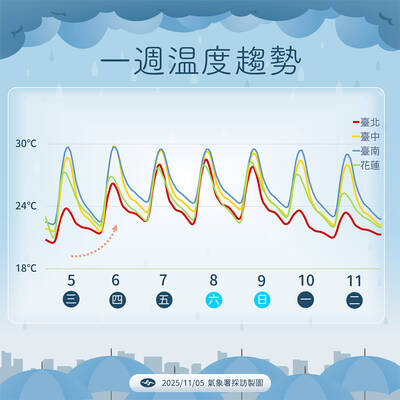Long-time environmental campaigner Chen Jiau-hua (陳椒華) yesterday expounded on what she said are problems with environmental impact assessment (EIA) meetings, saying that health-risk assessments should be conducted in a more accurate and comprehensive manner, while calling on local governments to dutifully calculate the quantity of pollutants emitted.
Chen said that many EIA committee members readily accept emissions data provided by industrial projects, without really going through the data to analyze their veracity.
The committee should order corporations to calculate not only the emissions from plants that are slated for expansion, but also the total quantity of emissions from industrial complexes, as it is the only method by which pollutants can truly be capped and the concept of “overall amount control” be put into practice, Chen said.
“In doing so, local authorities can avoid areas where emissions are already heavy before a new project is proposed, and disputes can be avoided,” Chen said.
She called on local governments to be more proactive in matters related to the EIA, saying that they often only set emission caps according to the maximum permissible amount of emissions stipulated by the committee, while being negligent about their duties to measure emissions at plants, she said.
In addition, local environmental protection agencies should conduct their own health risk assessments at least once every two years and compare them with assessments conducted by project owners, rather than assuming that all the information in reports required from developers by the Environmental Protection Administration is true, Chen said.
In reference to research by National Taiwan University Institute of Occupational Medicine and Industrial Hygiene professor Chan Chang-chuan (詹長權), which linked emissions from the naphtha cracker complex in Yunlin County to elevated chances of developing cancer, Chen said the EIA committee did not give the research the attention it deserves.
“All government-sponsored epidemiological studies should be treated with due respect and serve as important references during EIA meetings,” she said.
She called for a more clearly defined set of rules on how health risk assessments should be conducted, saying that the current rules have resulted in the lack of a standard operating procedure in approaches adopted by companies while conducting health risk assessments.
Chen, a professor at the Chia Nan University of Pharmacy and Science, is well-known for her active participation in EIA meetings and her unrelenting stance against firms in pollution-intensive industries.

Three Taiwanese airlines have prohibited passengers from packing Bluetooth earbuds and their charger cases in checked luggage. EVA Air and Uni Air said that Bluetooth earbuds and charger cases are categorized as portable electronic devices, which should be switched off if they are placed in checked luggage based on international aviation safety regulations. They must not be in standby or sleep mode. However, as charging would continue when earbuds are placed in the charger cases, which would contravene international aviation regulations, their cases must be carried as hand luggage, they said. Tigerair Taiwan said that earbud charger cases are equipped

Foreign travelers entering Taiwan on a short layover via Taiwan Taoyuan International Airport are receiving NT$600 gift vouchers from yesterday, the Tourism Administration said, adding that it hopes the incentive would boost tourism consumption at the airport. The program, which allows travelers holding non-Taiwan passports who enter the country during a layover of up to 24 hours to claim a voucher, aims to promote attractions at the airport, the agency said in a statement on Friday. To participate, travelers must sign up on the campaign Web site, the agency said. They can then present their passport and boarding pass for their connecting international

UNILATERAL MOVES: Officials have raised concerns that Beijing could try to exert economic control over Kinmen in a key development plan next year The Civil Aviation Administration (CAA) yesterday said that China has so far failed to provide any information about a new airport expected to open next year that is less than 10km from a Taiwanese airport, raising flight safety concerns. Xiamen Xiangan International Airport is only about 3km at its closest point from the islands in Kinmen County — the scene of on-off fighting during the Cold War — and construction work can be seen and heard clearly from the Taiwan side. In a written statement sent to Reuters, the CAA said that airports close to each other need detailed advanced

UNKNOWN TRAJECTORY: The storm could move in four possible directions, with the fourth option considered the most threatening to Taiwan, meteorologist Lin De-en said A soon-to-be-formed tropical storm east of the Philippines could begin affecting Taiwan on Wednesday next week, the Central Weather Administration (CWA) said yesterday. The storm, to be named Fung-wong (鳳凰), is forecast to approach Taiwan on Tuesday next week and could begin affecting the weather in Taiwan on Wednesday, CWA forecaster Huang En-hung (黃恩鴻) said, adding that its impact might be amplified by the combined effect with the northeast monsoon. As of 2pm yesterday, the system’s center was 2,800km southeast of Oluanbi (鵝鑾鼻). It was moving northwest at 18kph. Meteorologist Lin De-en (林得恩) on Facebook yesterday wrote that the would-be storm is surrounded by